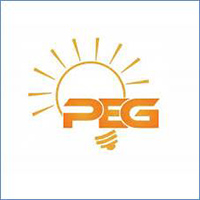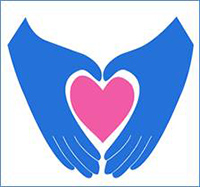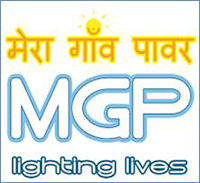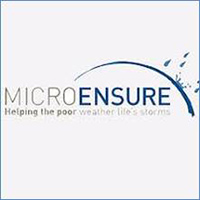2012 Projects - From over 40 applicants, 15 Yale undergraduates majoring in Global Affairs, Economics, Political Science and others were selected to work with project hosts in Africa and India. Of note, this year featured 4 standalone start-ups and one new product launch from seasoned social enterprise Opportunity International (MicroEnsure). This year’s project hosts include:
- Impact Energies, Ghana
- Farm Shop, Kenya
- Penda Health, Kenya
- Meera Gao, India
- MicroEnsure, Ghana
Impact Energies – Accra, Ghana
 Known today as PEGAfrica, led by co-founder Nate Heller (Yale SOM), provides solar home systems on credit to households in Ghana and Cote d’Ivoire. Using a unique ‘pay-as-you-go’ financing model, this for-profit company enables customers to replace their perpetual spending on poor-quality polluting fuels, such as kerosene, with solar energy that quickly becomes an asset the customer owns. The featured Solar Home System includes a solar panel, mobile-charging battery pack, three solar bulbs, three light switches, a torch, an FM radio, and comes with a warranty. The Yale was interested in Nate‘s vision for expansion across western Africa.
Known today as PEGAfrica, led by co-founder Nate Heller (Yale SOM), provides solar home systems on credit to households in Ghana and Cote d’Ivoire. Using a unique ‘pay-as-you-go’ financing model, this for-profit company enables customers to replace their perpetual spending on poor-quality polluting fuels, such as kerosene, with solar energy that quickly becomes an asset the customer owns. The featured Solar Home System includes a solar panel, mobile-charging battery pack, three solar bulbs, three light switches, a torch, an FM radio, and comes with a warranty. The Yale was interested in Nate‘s vision for expansion across western Africa.
Student participants: Eva Guadamillas, Charlotte McCurdy, Melia Ungson
Farm Shop – Nairobi, Kenya
 At the center of Farm Shop’s mission is economic empowerment and a belief that smallholder farmers know most about what is best for them. Their passion, knowledge, skills and dedication are behind the Farm Shop franchisee model. Farm Shop franchisees are independent entrepreneurs who train and practice to become experienced business people. They manage community-level agro-dealer shops under the Farm Shop brand and provide customers with a one-stop-shop for all they need to improve their production. Farm Shop identifies the most qualified and committed potential franchisees and the locations with the greatest potential for smallholders impact. The Yale team joined was most interested to learn more about micro-franchising, having studied the pros and cons of other franchise-minded entrepreneurs in the classroom.
At the center of Farm Shop’s mission is economic empowerment and a belief that smallholder farmers know most about what is best for them. Their passion, knowledge, skills and dedication are behind the Farm Shop franchisee model. Farm Shop franchisees are independent entrepreneurs who train and practice to become experienced business people. They manage community-level agro-dealer shops under the Farm Shop brand and provide customers with a one-stop-shop for all they need to improve their production. Farm Shop identifies the most qualified and committed potential franchisees and the locations with the greatest potential for smallholders impact. The Yale team joined was most interested to learn more about micro-franchising, having studied the pros and cons of other franchise-minded entrepreneurs in the classroom.
Student participants: Melissa Hou, Courtney Kaplan, Maria Osario
Penda Health – Nairobi, Kenya
 Founded in 2012 for-profit Penda Health offers communities in Nairobi an alternative to “free” clinics, by offering customers timely, accurate and reliable care. Focusing on a quality experience for the customer starts right from the moment a patient walks in the door of a Penda Medical Centre and continues through to the follow-up call you receive from our providers after your visit. As a primary care clinic, they have grown to focus on urgent care (e.g. injuries), pre and post-natal care (including vaccinations), and dental services. In addition, Penda has developed its own lab capacity to keep costs test costs low. The Yale team was drawn by the passion of the founders and the unique dashboard they were creating for early funders to monitor patient visits as well as real time revenues and operating costs.
Founded in 2012 for-profit Penda Health offers communities in Nairobi an alternative to “free” clinics, by offering customers timely, accurate and reliable care. Focusing on a quality experience for the customer starts right from the moment a patient walks in the door of a Penda Medical Centre and continues through to the follow-up call you receive from our providers after your visit. As a primary care clinic, they have grown to focus on urgent care (e.g. injuries), pre and post-natal care (including vaccinations), and dental services. In addition, Penda has developed its own lab capacity to keep costs test costs low. The Yale team was drawn by the passion of the founders and the unique dashboard they were creating for early funders to monitor patient visits as well as real time revenues and operating costs.
Student participants: Jen Downing, Miles Grimshaw, Mariana Lanzas Goded
Meera Gao – Lucknow, India
 Founded in 2010, MGP has focused on providing low-cost energy services to remote villages of under 50 households. MGP’s unique approach to providing energy access has seen the company provide access to energy for the most remote villages for approximately US$2 per month. To achieve this, MGP has developed a solar-powered micro-grid which costs less than US $1,000 to install, the lowest-cost commercially viable micro grid. The villages that MGP serves would otherwise be the last priority for grid-based electrification. The Yale team worked directly with co-founder Nikhil Jaisinghani and was particularly motivated to learn about off-grid energy and the unique payment model trialed by MGP.
Founded in 2010, MGP has focused on providing low-cost energy services to remote villages of under 50 households. MGP’s unique approach to providing energy access has seen the company provide access to energy for the most remote villages for approximately US$2 per month. To achieve this, MGP has developed a solar-powered micro-grid which costs less than US $1,000 to install, the lowest-cost commercially viable micro grid. The villages that MGP serves would otherwise be the last priority for grid-based electrification. The Yale team worked directly with co-founder Nikhil Jaisinghani and was particularly motivated to learn about off-grid energy and the unique payment model trialed by MGP.
In 2012, MGP was awarded the World Economic Forum Technology Pioneer Award. MIT’s Technology Review Magazine selected the company’s micro grid design as one of the ten most important technological achievements of 2012. Its contribution has also been recognized by the Indian Government’s Department of Science and Technology, which highlights MGP’s role in its ‘India Innovates’ Report. In 2016, Forbes India recognized MGP as one of five social enterprises tackling some of India’s largest social problems.
Student participants: Byron Edwards, Ana Grajales, Eric Levine
MicroEnsure – India
 In 2002, Opportunity International, one of the world’s largest microfinance organizations, into the potential of providing microinsurance for its existing loan BoP clients. According to their market research, they noticed a void in the microinsurance market: there was a need for a focused intermediary that would be able to efficiently link the risk carrier with the distributor. As an intermediary, MicroEnsure designs and administers launched products, processes claims, and trains sales staff to better provide services to insurance clients. As of August 2012, MicroEnsure served as an insurance intermediary and designed low cost insurance products for over 4.5 million low income clients across 6 countries- Ghana, India, Malaysia, the Philippines, Tanzania and Kenya and additionally had satellite operations in Malawi, Mozambique, Rwanda, Zambia and Zimbabwe. Partners of MicroEnsure included microfinance institutions, rural banks and other social institutions which enabled them to reach out to a wider client base. The Yale was drawn to MicroEnsure by their unique partnership model with regional telcos that bundled insurance into airtime sales.
In 2002, Opportunity International, one of the world’s largest microfinance organizations, into the potential of providing microinsurance for its existing loan BoP clients. According to their market research, they noticed a void in the microinsurance market: there was a need for a focused intermediary that would be able to efficiently link the risk carrier with the distributor. As an intermediary, MicroEnsure designs and administers launched products, processes claims, and trains sales staff to better provide services to insurance clients. As of August 2012, MicroEnsure served as an insurance intermediary and designed low cost insurance products for over 4.5 million low income clients across 6 countries- Ghana, India, Malaysia, the Philippines, Tanzania and Kenya and additionally had satellite operations in Malawi, Mozambique, Rwanda, Zambia and Zimbabwe. Partners of MicroEnsure included microfinance institutions, rural banks and other social institutions which enabled them to reach out to a wider client base. The Yale was drawn to MicroEnsure by their unique partnership model with regional telcos that bundled insurance into airtime sales.
Student participants: Bibhusha Dangol, Amal Ga’al, Michael Palasano
